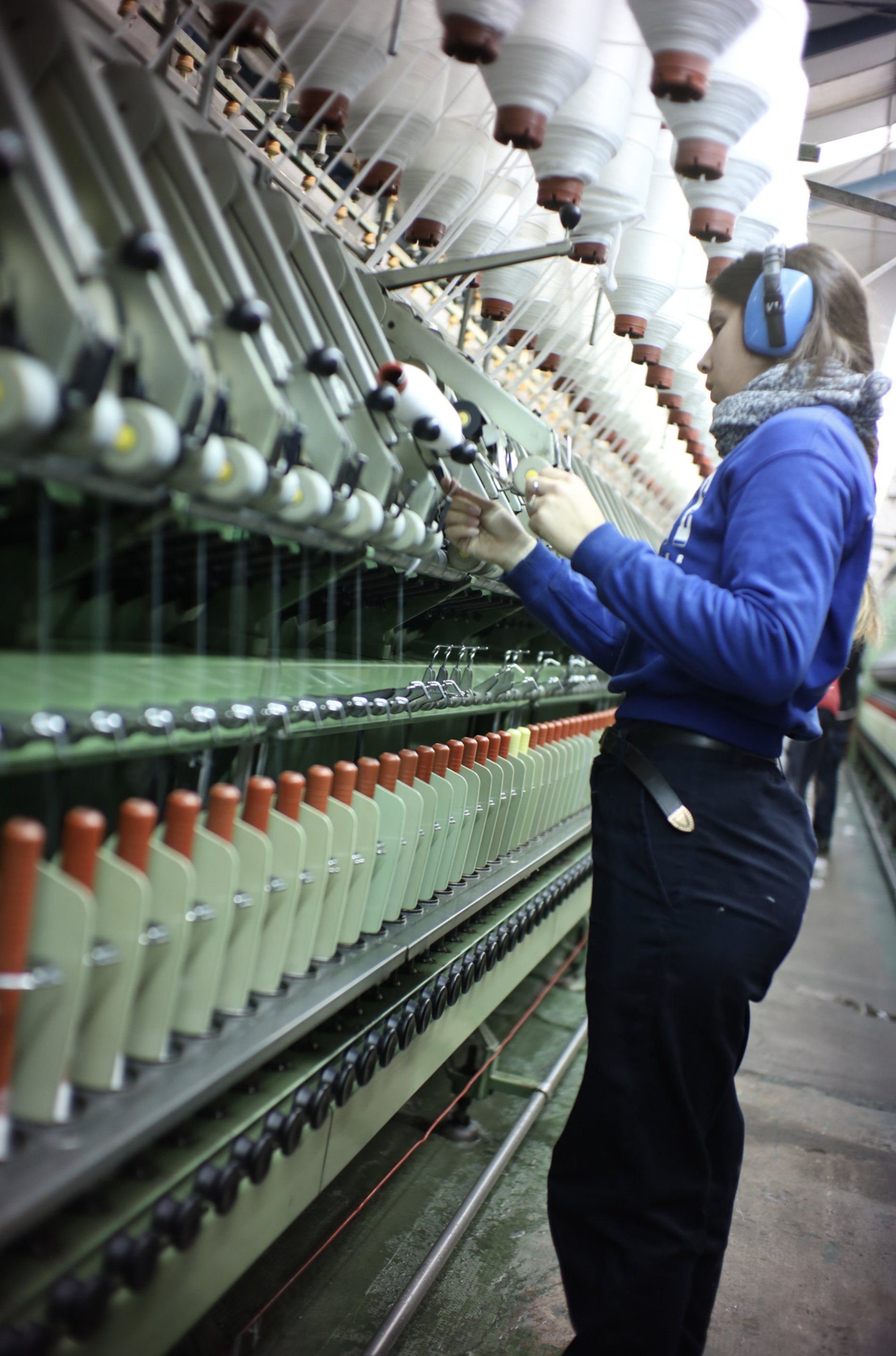Never stay still.
(an interview) with Jorge Rey
Text by Fermin Solana for New Braves, Translated by Ellie Robins
español
Illustration by @francisco_____cunha
Jorge Rey has been completely wrapped up in the textile world and its fluctuations for more than 40 years. Originally an agricultural engineer, he fell into what would end up being his trade through, in his words, an “accident of fate.” While he was looking for a line of work that would challenge him, his then partner suggested that he go into the world of hand-knitted clothing.
“I had my own textile factory, called Filaner, for more than 35 years. That’s where I learned the trade and became what I am. I ended up having 100 employees, and we sold clothes to many countries around the world,” says this giant of the industry. For the past six years he’s been at Burma, a true institution and the largest producer and exporter of sweaters in Uruguay—which is in turn one of the world’s top producers of wool.
For New Braves it’s an honor not only to work with a label like Burma, but also to do so hand-in-hand with an industry leader like Jorge. We asked him for the magic secret that helps him stay fresh in everything he does.
NB
How did you first get involved in the textile world?
JR
At that time I loved taking on new business ventures as a way to challenge myself, so, at my then-partner’s suggestion, we got involved in producing hand-knitted clothing. This was more than 40 years ago. I was an agricultural engineer and I also worked at a rural property with my brother.
NB
What are your earliest memories of knits?
JR
I remember them as a giant obstacle course. There were problems getting yarn, problems dyeing it, problems weaving it—everything. We wanted to be professional from the start, in terms of the type of product we made, the quality of our products, the production process, etc. We took a lot of big hits, but I also grew up in the process.
NB
What ended up awakening your passion for what you do?
JR
Over time, we began to expand overseas—this was a long time ago, when the world wasn’t as interconnected as it is now. I was lucky enough to travel to Japan, where we went to various trade fairs to sell our garments. That was where I ended up getting passionate about finding the harmony between beauty and a business philosophy that went beyond the ordinary. I learned a lot from the Japanese, and I went there several times for work. I even took my two children there a few years ago. I wanted them to know Japan’s all about.
Illustration by @francisco_____cunha
NB
How has a company like Burma produced such a consistent quality of products through all these years?
JR
When I arrived at Burma, I found an extremely valuable team of people, with a long history in production as well as a unique setup—the only equipment of its kind in the country, allowing for complete vertical integration of the production process, from the first fibers to the final product—a sweater, for example. It’s the fact that the whole process is done in-house that has made Burma so well known for its high quality and high performance quality. We take great care with every aspect of production, since each element can affect the quality of the final product.
NB
Can you tell us about some of the milestones in Burma’s long history?
JR
At first, the fabrics were made using manual knitting machines. Over time, these were replaced by mechanical knitting machines, and the job of manual knitter gradually disappeared. By the mid 1980s, there was a big investment in digitized knitting machines. These machines could do the same things as any knitter, including form-knitting, for which there was a special program carried out by independent IT teams. These machines keep getting more complex—the newest generation can make complete prototypes without any sewing. A few years ago, the company started producing a clothing line made of fine fabrics (like merino and alpaca), designed for the export market. Now we also work with big French, English, and North American brands, as well as for some premium regional brands.
NB
What’s unique about your buyers’ needs today?
JR
Our international clients are getting more and more concerned about where and how their garments were made, and the primary materials that were used. Brands have realized that their image can be seriously damaged if their products aren’t made under particular conditions. And when it comes to our materials, more and more of our clients are asking us to use RWS (Responsible Wool Standard)-certified wool, which certifies the origins and living conditions of the sheep—who must also be sheared under particular conditions.
Our clients also want to know about the social and labor conditions their products are made under (so, the quality of the workplace, health-care coverage, formal terms of employment, salaries and how they’re negotiated, etc), as well as any environmental impacts of the production process. Which is to say, they want to confirm that production is globally sustainable. On that front, Uruguay has very progressive labor regulations and adequate environmental regulations, as well as a power grid that’s mostly based on renewable sources. It’s a good starting point. But these are also issues that Burma is particularly concerned about, and we work every day to improve our processes and make changes in those processes as well as our packaging, to reduce our products’ environmental impact.
JORGE
Uruguay has very progressive labor regulations and adequate environmental regulations, as well as a power grid that’s mostly based on renewable sources.
NB
Describe a typical day in your week…
JR
There’s definitely always a lot to do and many challenges to overcome.
NB
How do you keep increasing your love for what you do?
JR








